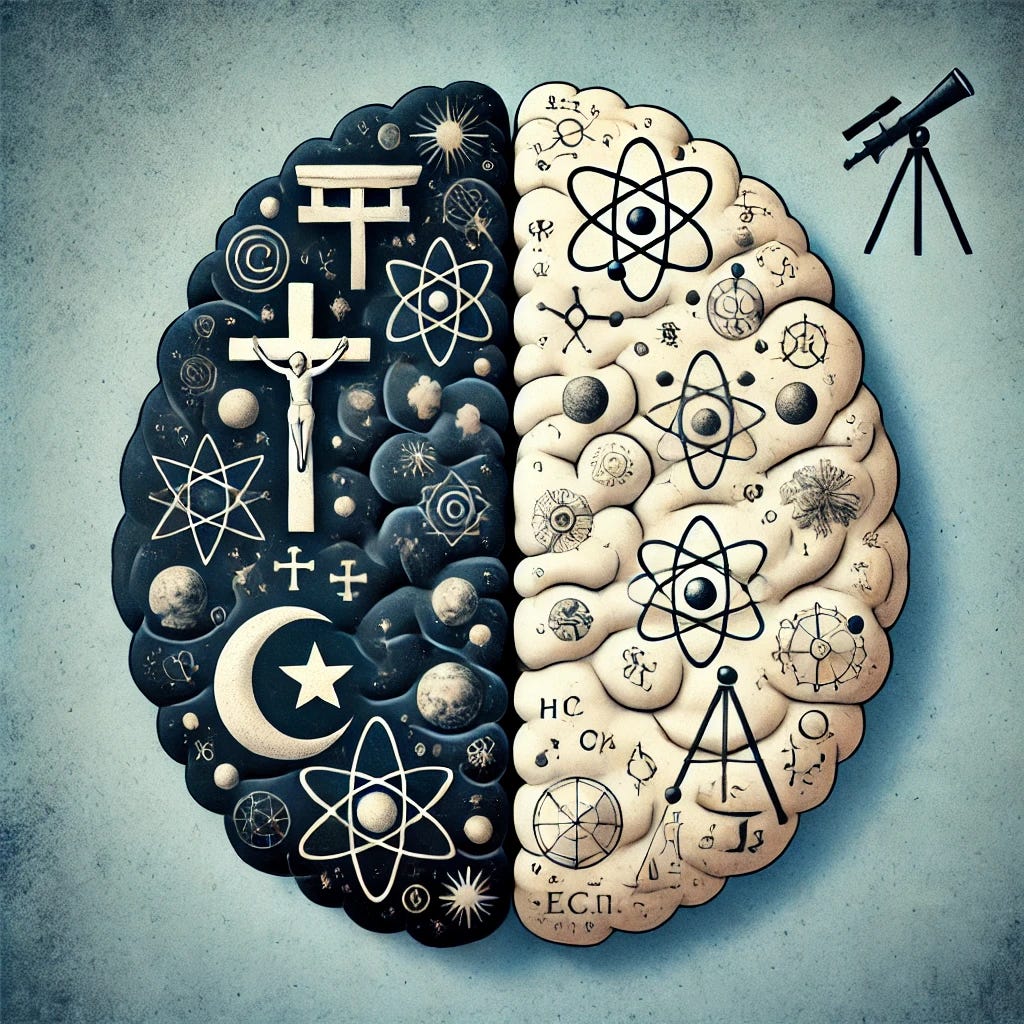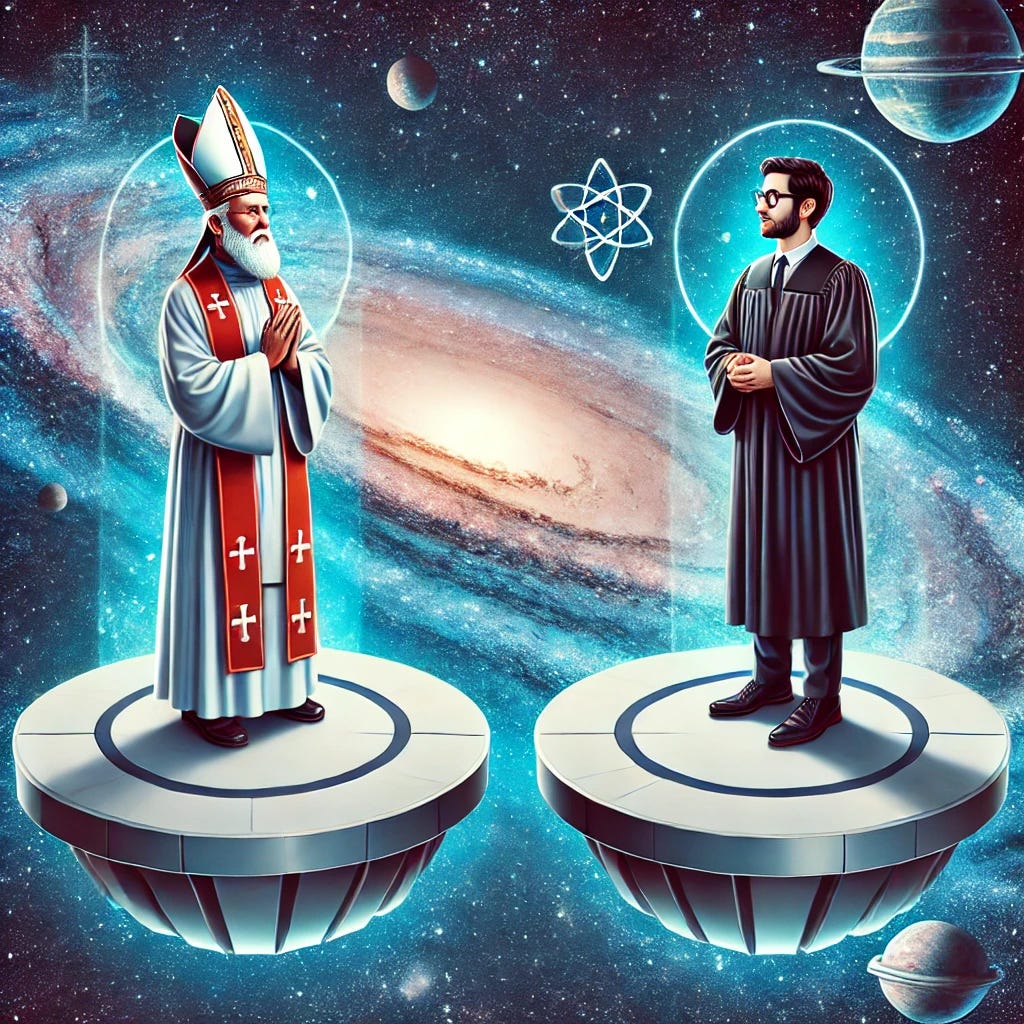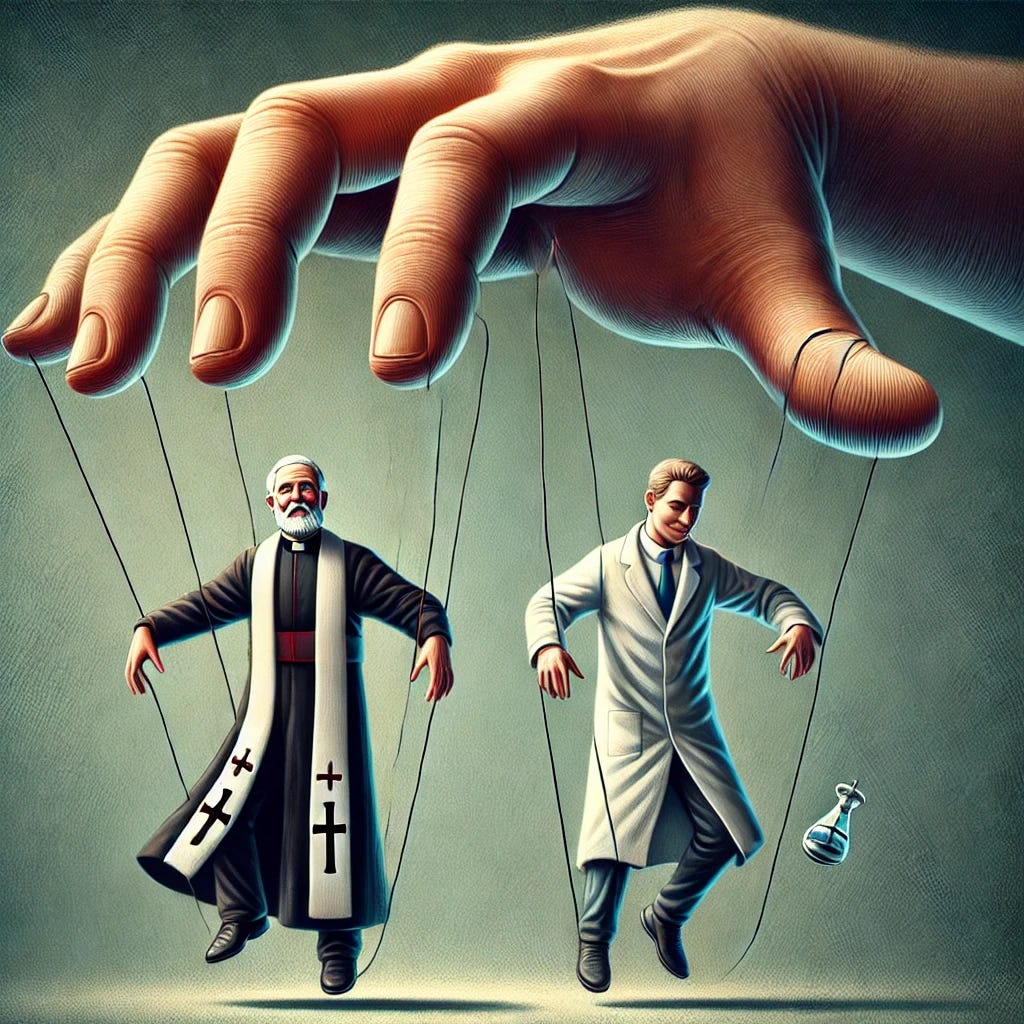I’ve been an antitheist for a long time. I’ve argued that religion promotes dogma, stifles intellectual growth, and often serves as a tool for oppression. I’ve looked at history and seen the damage caused by religious institutions—wars, persecution, science denial, and moral policing. And yet, when I take a step back, I have to ask: Is antitheism always the right approach? Are there flaws in the way we think about religion and its role in human life?
If I’m being honest, I think there are. Even though I still strongly oppose many aspects of organized religion, I also see how antitheism—if taken too far—can fall into some of the same traps it criticizes. So, let’s take a hard look at some of the issues with antitheism, even from the perspective of someone who still largely agrees with its core ideas.
The Problem of Absolutism
One of the biggest issues with antitheism is that it can become just as rigid and dogmatic as the religious ideologies it opposes. A lot of antitheists argue that all religion is harmful, period. But that’s an oversimplification. While religion has certainly been responsible for plenty of suffering, it’s also brought comfort, community, and moral guidance to billions of people.
Not every religious person is an extremist. Not every religious tradition is inherently oppressive. There have been religious movements that fought for social justice, civil rights, and education. So, when antitheists paint all religion with the same broad brush, we risk ignoring these nuances and falling into the same kind of black-and-white thinking that we criticize in fundamentalists.
Counter-Argument: The Amplification of Extremism
While it’s true that most religious people are not extremists, the problem is that it only takes a very small number of radicals, given today’s networked technologies, to create massive global consequences. In an era of mass communication, social media, and international broadcasting, extremist narratives can spread faster than ever before.
Throughout history, religious fundamentalists have leveraged the “us-versus-them” paradigm to wage war, justify oppression, and drive political movements. But now, in the digital age, those same ideological divisions can be magnified and weaponized almost instantly. A handful of extremists with the right platform—whether a social media account, a 24-hour news network, or a radical preacher with global reach—can manufacture an existential crisis out of nothing, and before long, entire communities, even nations, are caught up in a conflict that might have otherwise remained localized.
The modern world has seen countless examples of this. Terrorist organizations use religious rhetoric to justify atrocities, while political leaders invoke divine mandates to push agendas that marginalize others. In some cases, even moderate religious groups have been manipulated into supporting extremist causes because of how quickly misinformation and emotional appeals spread. And this isn’t just a problem with radical Islam or Christian nationalism—every major religious tradition has factions that can be exploited in this way.
The danger, then, is that while the vast majority of believers may be peaceful and well-meaning, the very nature of religious authority, faith-based thinking, and in-group loyalty makes it uniquely vulnerable to exploitation. When religious belief is tied to identity and morality, it becomes an incredibly powerful motivator—often overriding reason, critical thinking, and even self-preservation. If an extremist can convince followers that their faith, culture, or civilization is under attack, history has shown that people will go to terrifying lengths to defend it.
So, What’s the Middle Ground?
Does this mean that all religion should be treated as a threat? Not necessarily. But it does mean that antitheists have a point when they argue that religion, even in its milder forms, carries inherent risks. Unlike other ideologies, religious belief tends to be absolute—it isn’t based on negotiation, compromise, or change. And because of that, even the most harmless-seeming religious doctrines can, under the right conditions, give rise to extremism.
At the same time, though, simply eliminating religion isn’t a realistic solution. As I pointed out earlier, religion provides meaning, structure, and a sense of belonging that many people need. A more practical approach might be to push for secularism—not necessarily antitheism. Instead of trying to eradicate faith, the goal should be to create a world where religion is personal, separate from government, and not weaponized for political or violent ends.
This means promoting education, critical thinking, and secular ethics that can help inoculate people against the worst abuses of religious extremism. It also means recognizing that while religious people aren’t all extremists, they need to be more aware of how their faith can be manipulated—and take responsibility for preventing that from happening.
The Overestimation of Reason
Antitheists, myself included, champion reason as the ultimate guide to understanding the world. And to be fair, rational thinking, science, and critical inquiry are incredibly important. But let’s be real—humans are not purely rational creatures.
We make decisions based on emotions, biases, and psychological needs. Many people turn to religion not because they’re rejecting reason, but because religion offers things that pure rationalism doesn’t: a sense of purpose, belonging, and a way to cope with life’s uncertainties. Antitheists sometimes assume that if people just embraced logic and evidence, they’d naturally abandon religion. But it’s not that simple. For many, faith isn’t about proving something is objectively true—it’s about finding meaning in a chaotic world.
Ignoring the Cultural Side of Religion
Another problem with hardcore antitheism is that it often ignores how deeply religion is tied to culture, history, and identity. Religion isn’t just about belief in God—it’s woven into music, art, literature, and traditions. Even if you’re an atheist, you can’t deny the impact that religious stories and symbols have had on civilization.
If antitheists push for the complete eradication of religion, what happens to all that cultural heritage? Do we just throw it away? And what about people who don’t necessarily believe in every religious teaching but still find value in their traditions? For some, their religion is more about their history and community than about literal belief. Antitheism, when it becomes too aggressive, can come off as dismissive—almost like it’s trying to erase something deeply personal for a lot of people.
The Myth of a Religion-Free Utopia
A lot of antitheists believe that if we could just get rid of religion, the world would be a much better place—more rational, peaceful, and just. But history doesn’t really back that up. We’ve seen plenty of secular ideologies—extreme nationalism, political cults, and authoritarian regimes—that have caused just as much harm as religious fundamentalism. Humans have a way of creating new belief systems, even when they don’t involve gods.
Look at political movements that become almost religious in nature. They have their own sacred texts, their own “prophets,” and their own punishments for heretics who don’t toe the line. Getting rid of religion doesn’t mean getting rid of irrationality. People will just find new things to believe in, sometimes with just as much blind faith and fervor.
So, Where Does That Leave Us?
I’m still an antitheist. I still think religion, especially when it has unchecked power, causes a lot of harm. But I also think that pure, militant antitheism has its flaws. If we’re truly committed to reason and open-mindedness, then we need to be willing to critique our own stance, just like we critique religion.
Instead of trying to eliminate religion entirely, maybe the goal should be to create a world where belief and nonbelief can coexist. Where religious people can practice their faith without imposing it on others, and where secular alternatives provide meaning and community for those who don’t believe. Rather than seeing religion as an enemy to be destroyed, we could focus on making sure it evolves in ways that are ethical, inclusive, and compatible with modern values.
At its best, antitheism challenges dogma and promotes intellectual freedom. At its worst, it can become just another form of absolutism. If we really care about truth, then we have to be willing to ask the hard questions—even when they challenge our own beliefs.










